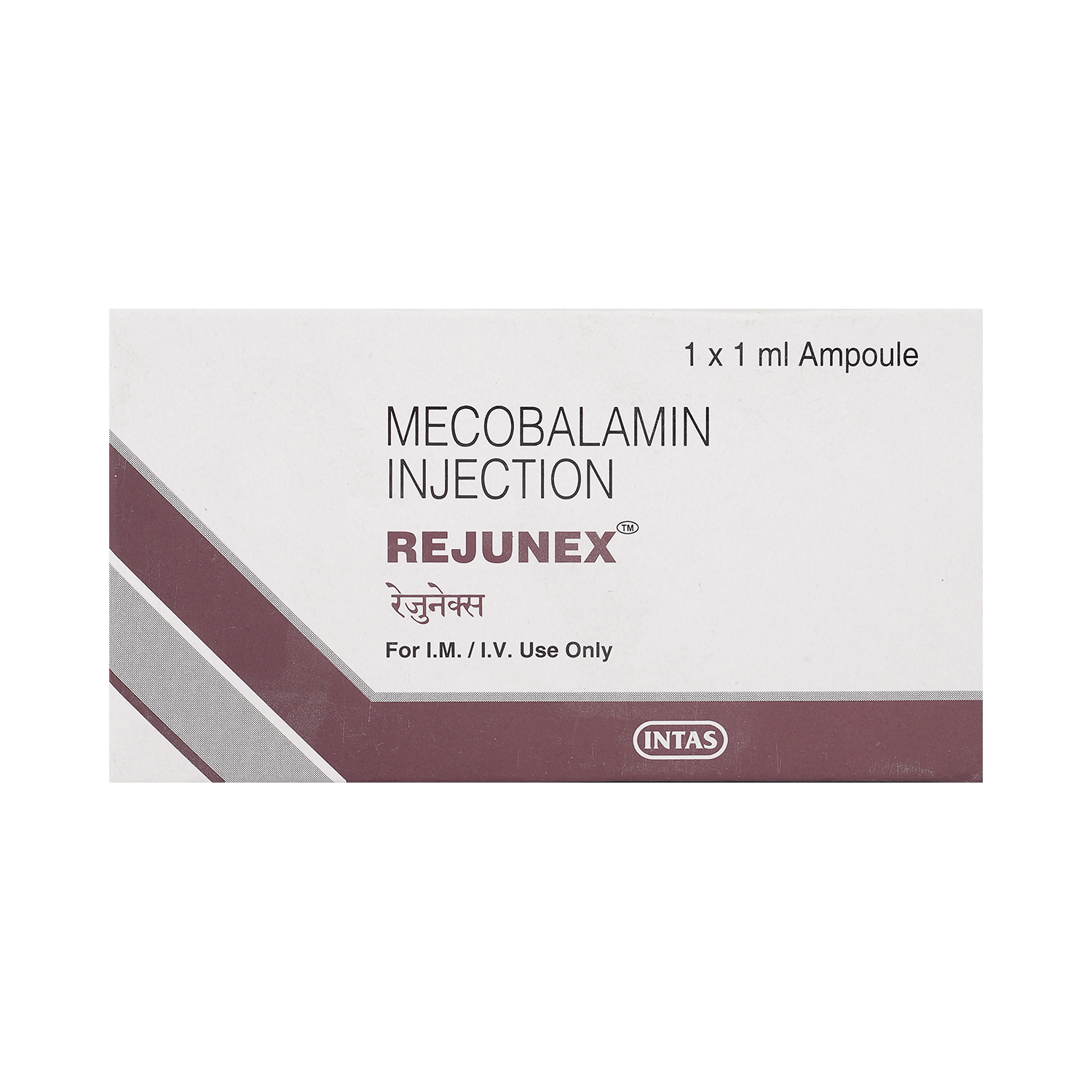
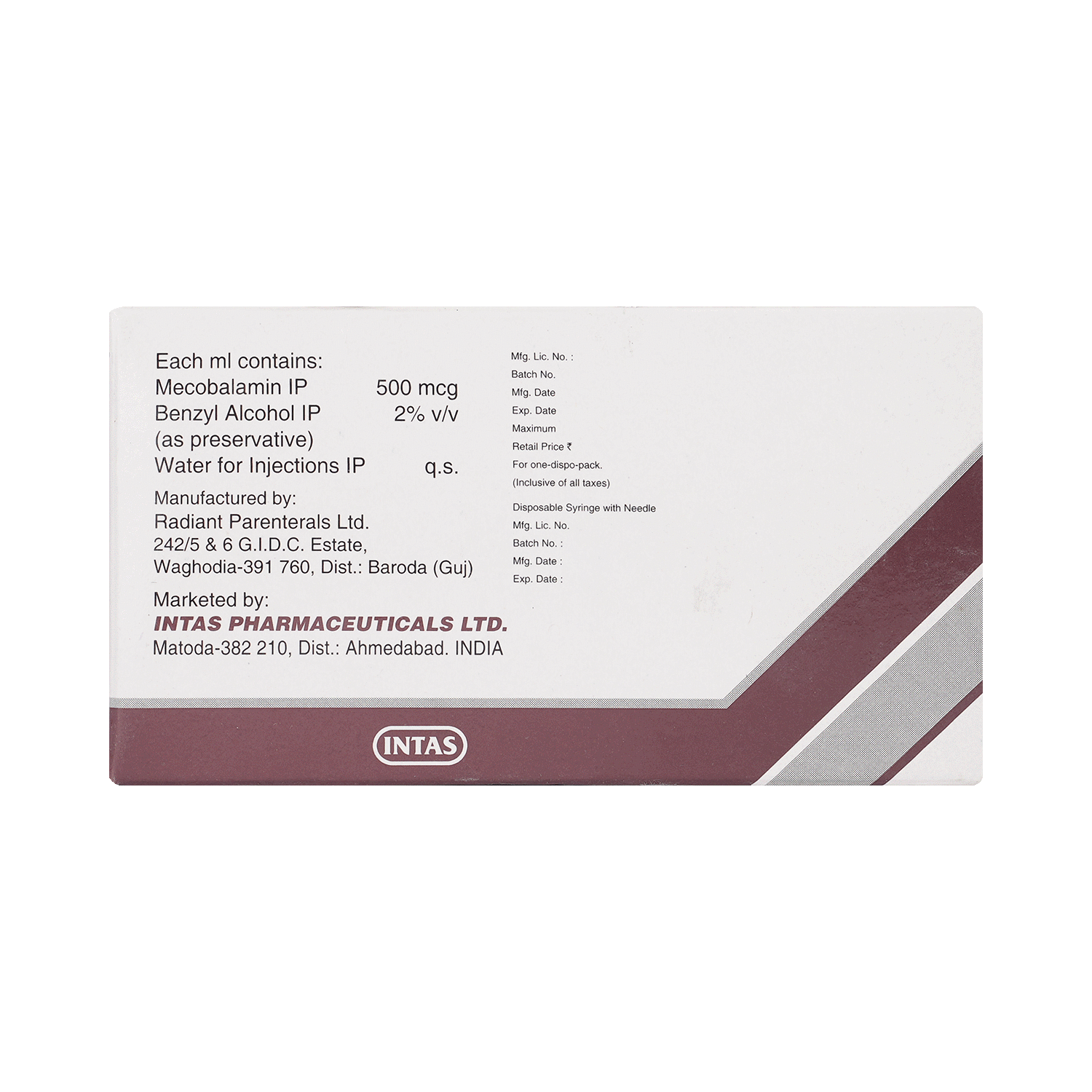
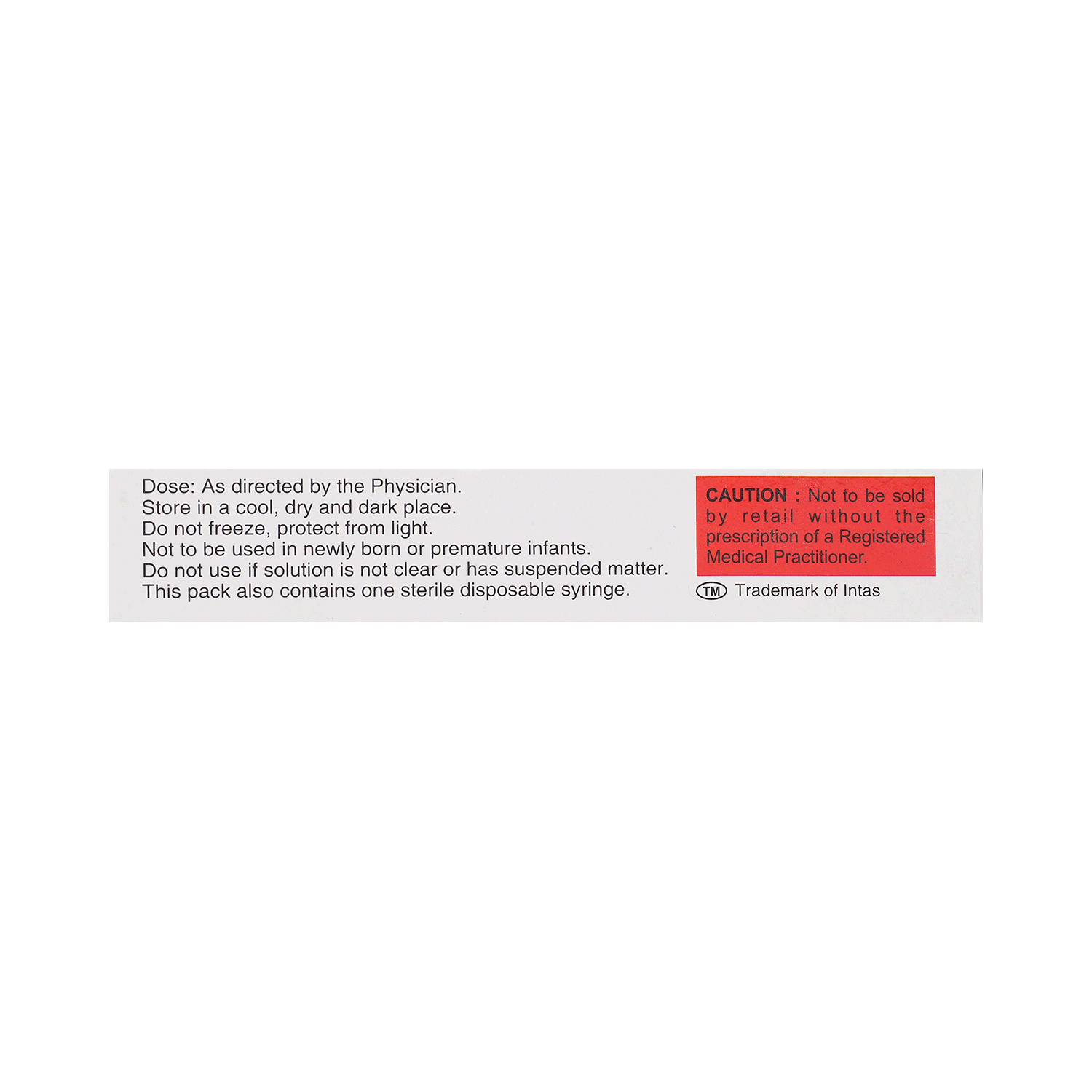
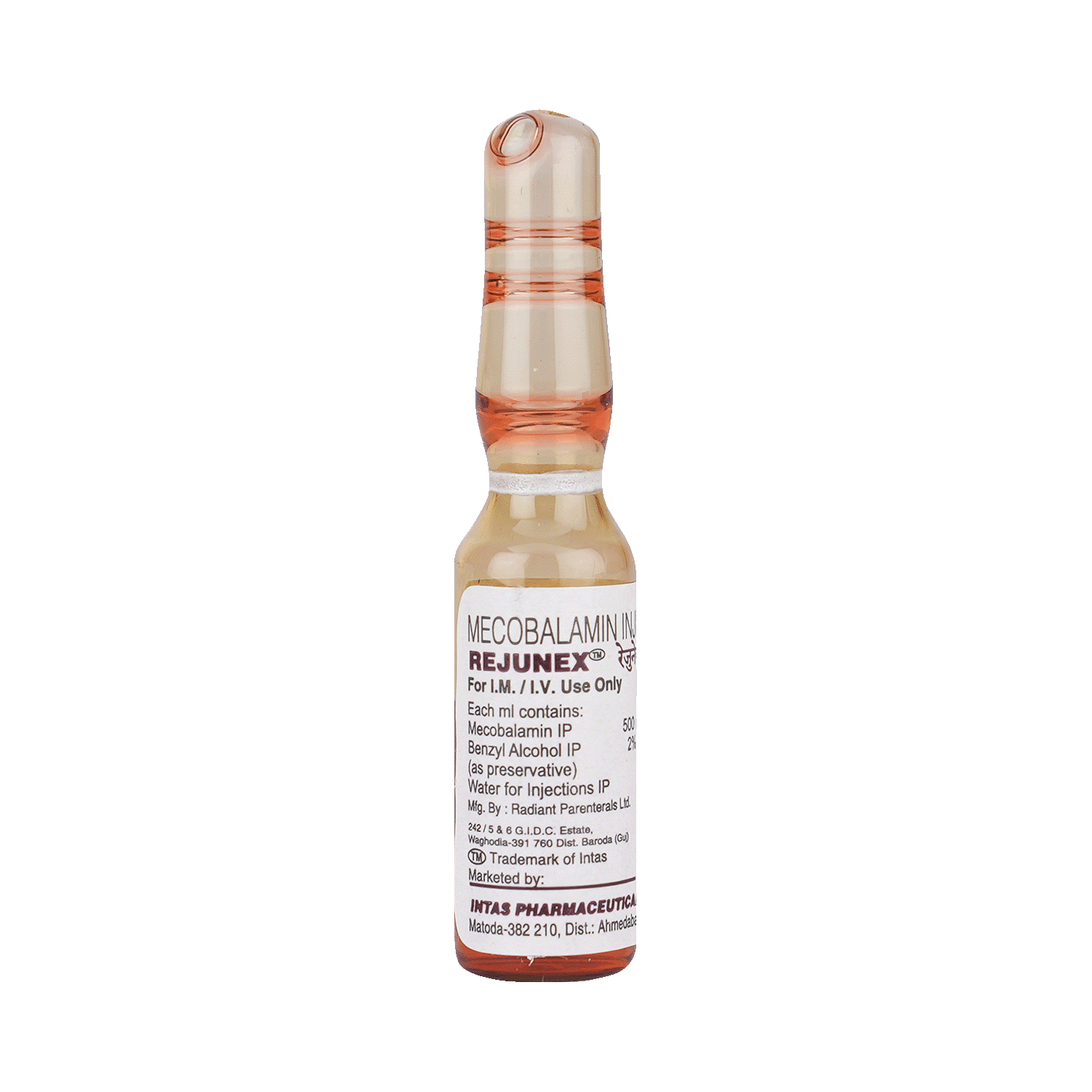
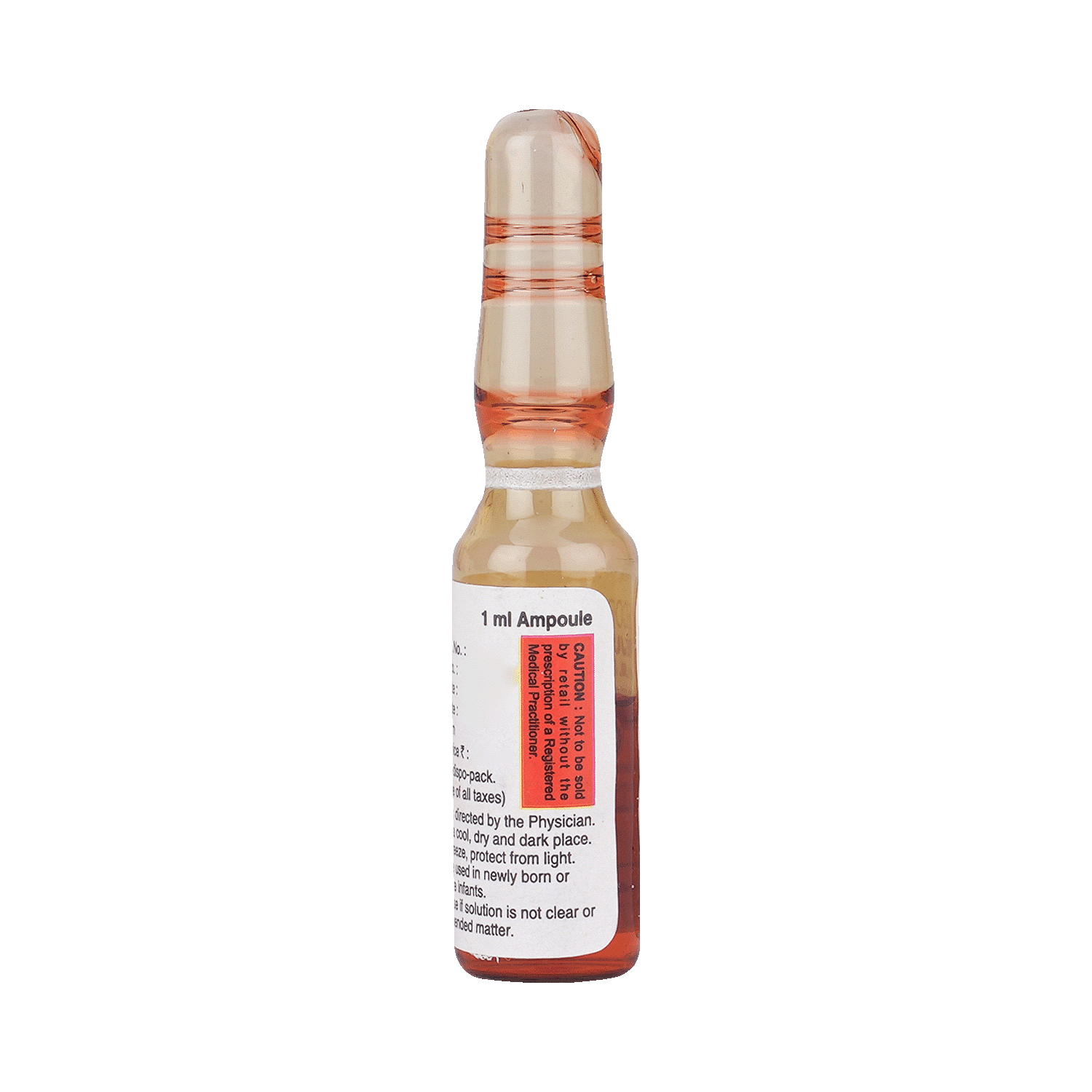
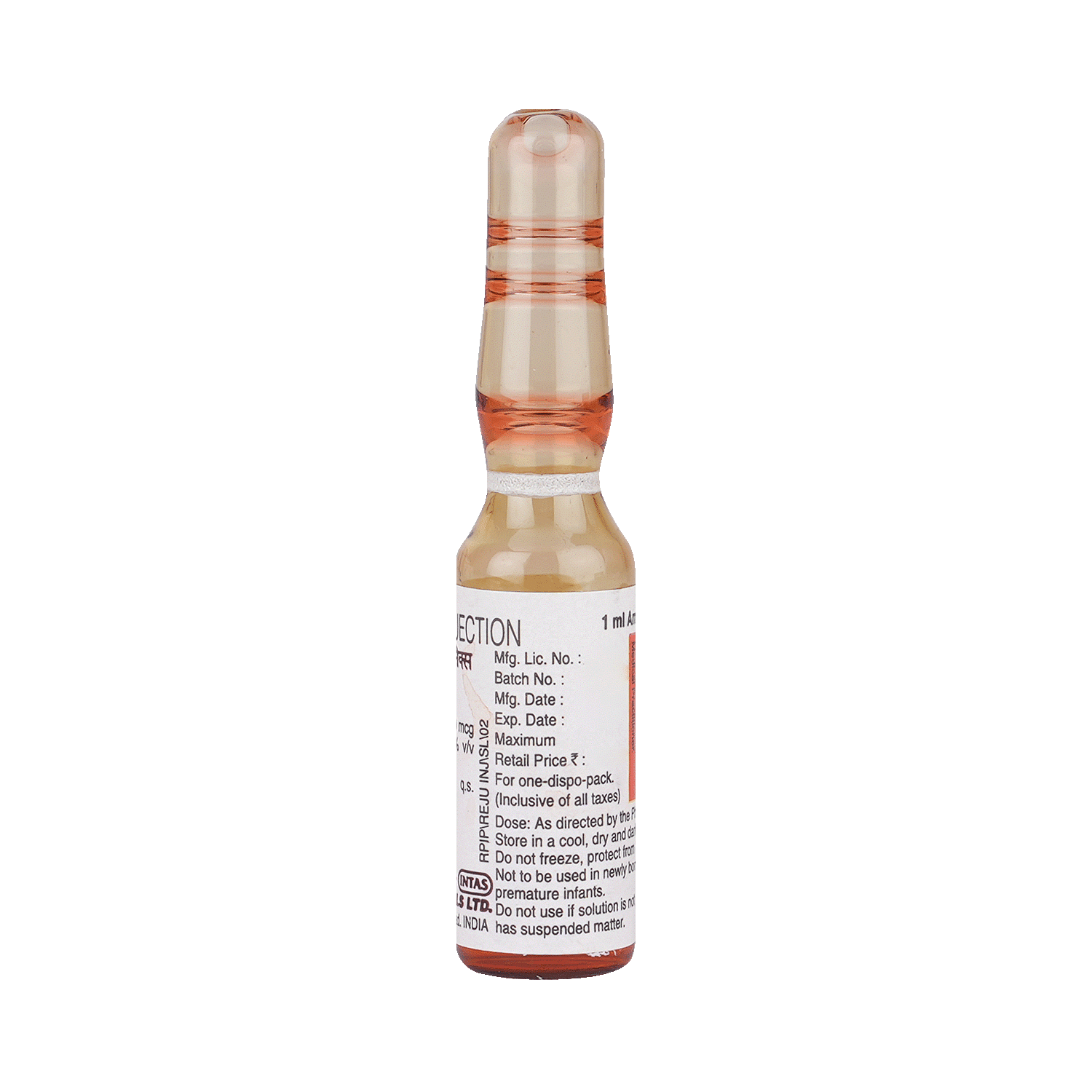
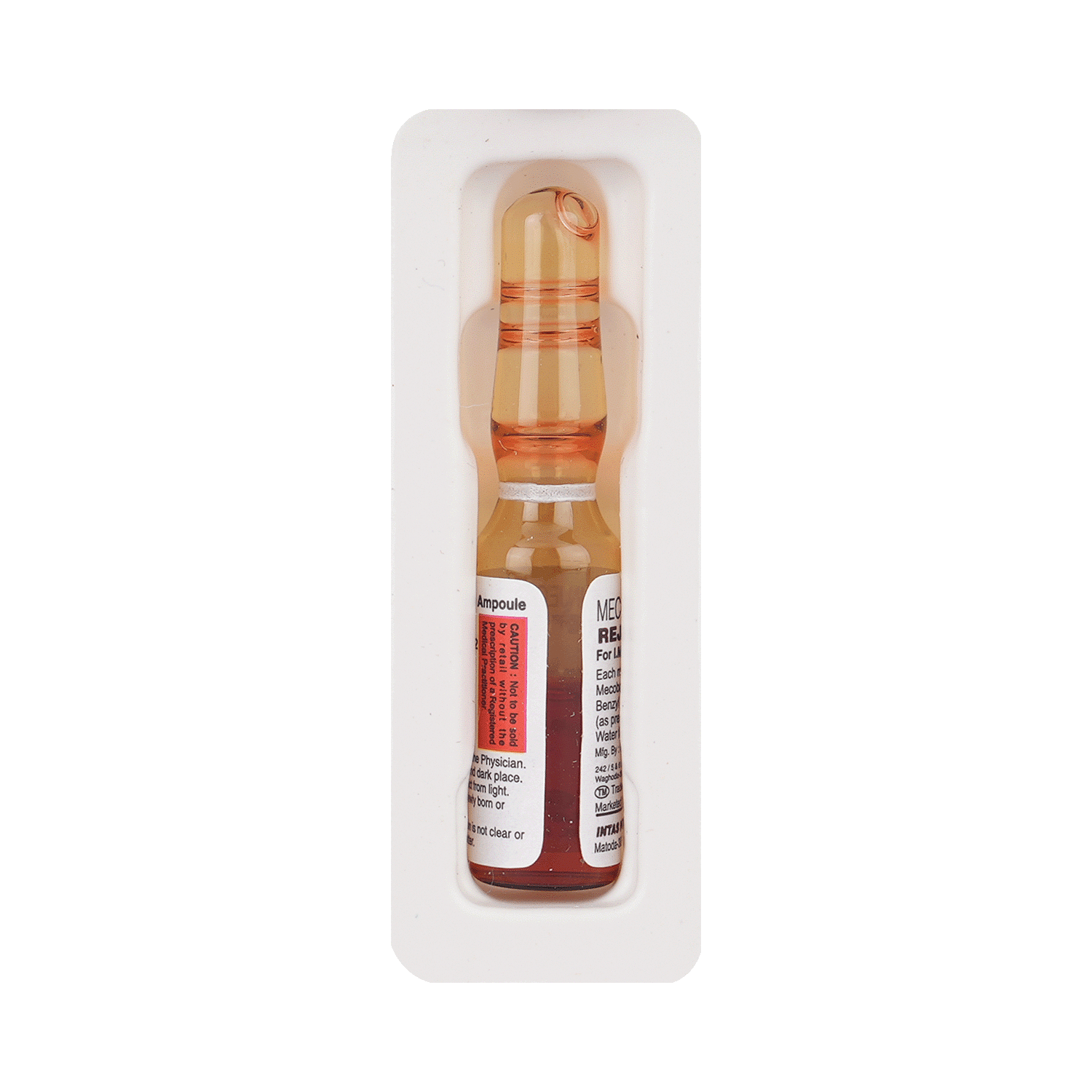
Rejunex Injection
Manufacturer
Intas Pharmaceuticals Ltd
Salt Composition
Methylcobalamin (500mcg)
Key Information
Short Description
Rejunex Injection is a man-made form of vitamin B12 used to treat deficiency of vitamin B12 in the body.
Dosage Form
Injection
Introduction
Rejunex Injection is a man-made form of vitamin B12 that restores its level in the body thereby helping in treating certain anemias and nerve problems. Vitamin B12 is important for growth, cell reproduction, blood formation, and protein and tissue synthesis. It also helps to treat anemia, fatigue, and numbness or tingling in the hands and feet.
Directions for Use
Your doctor or nurse will give you this medicine. Kindly do not self administer.
Safety Information
Side Effects
No common side effects listed.
Alcohol Warning
It is not known whether it is safe to consume alcohol with Rejunex Injection. Please consult your doctor.
Breastfeeding Warning
Rejunex Injection is probably unsafe to use during breastfeeding. Limited human data suggests that the drug may pass into the breastmilk and harm the baby.
Pregnancy Warning
Rejunex Injection may be unsafe to use during pregnancy. Although there are limited studies in humans, animal studies have shown harmful effects on the developing baby. Your doctor will weigh the benefits and any potential risks before prescribing it to you. Please consult your doctor.
Interacting Medicines
Chloramphenicol Orlistat
How it works
Rejunex Injection is a form of vitamin B12 that restores its level in the body thereby helping in treating certain anemias and nerve problems.
Quick Tips
Rejunex Injection helps replenish vitamin B12 level in your body. This further helps in regeneration of damaged nerves in the body. Avoid or limit alcohol consumption while taking this medication.
Related Medicines
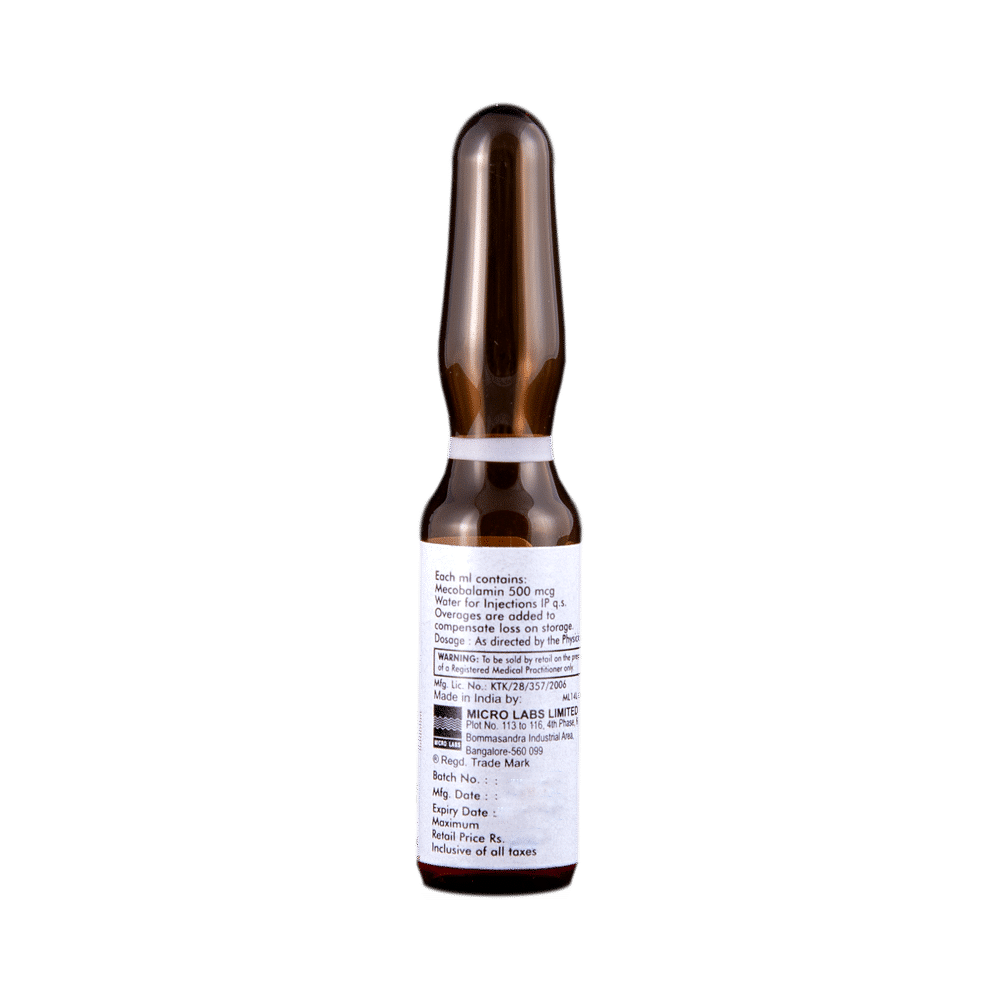
Meconerv Injection
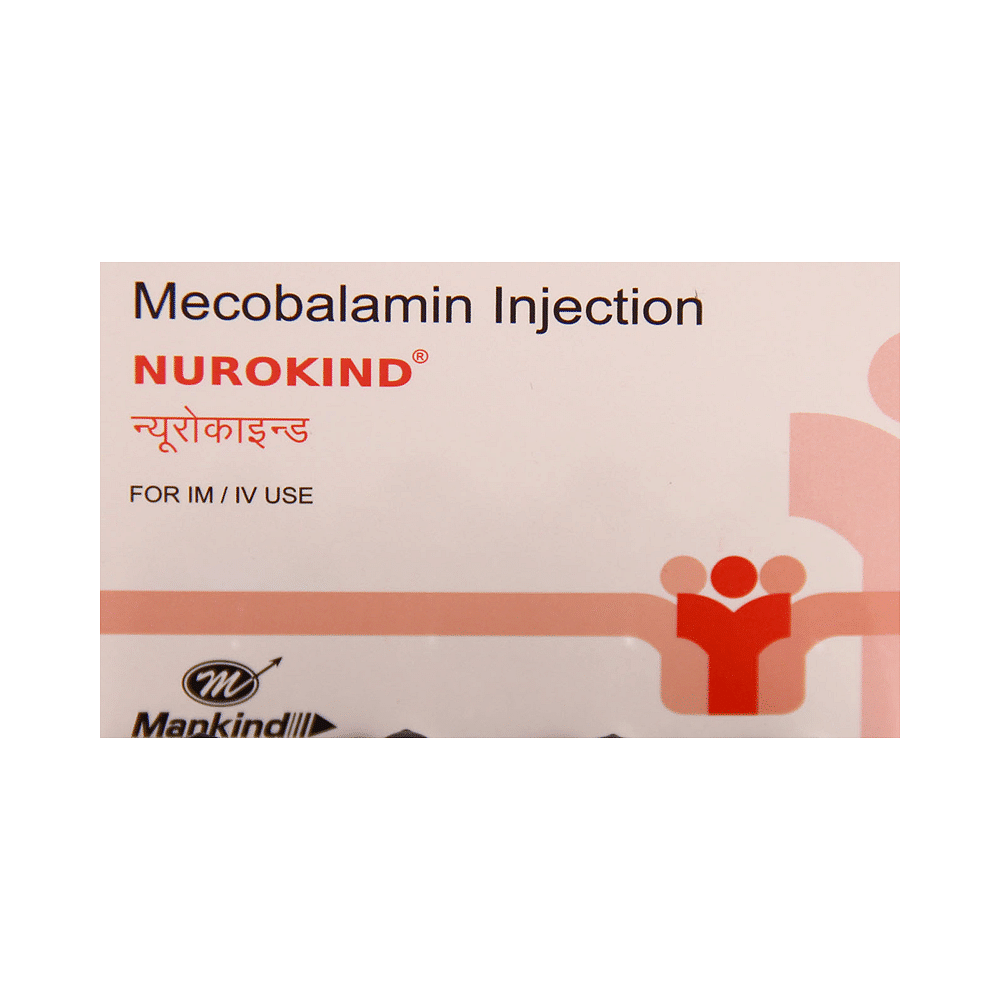
Nurokind Injection
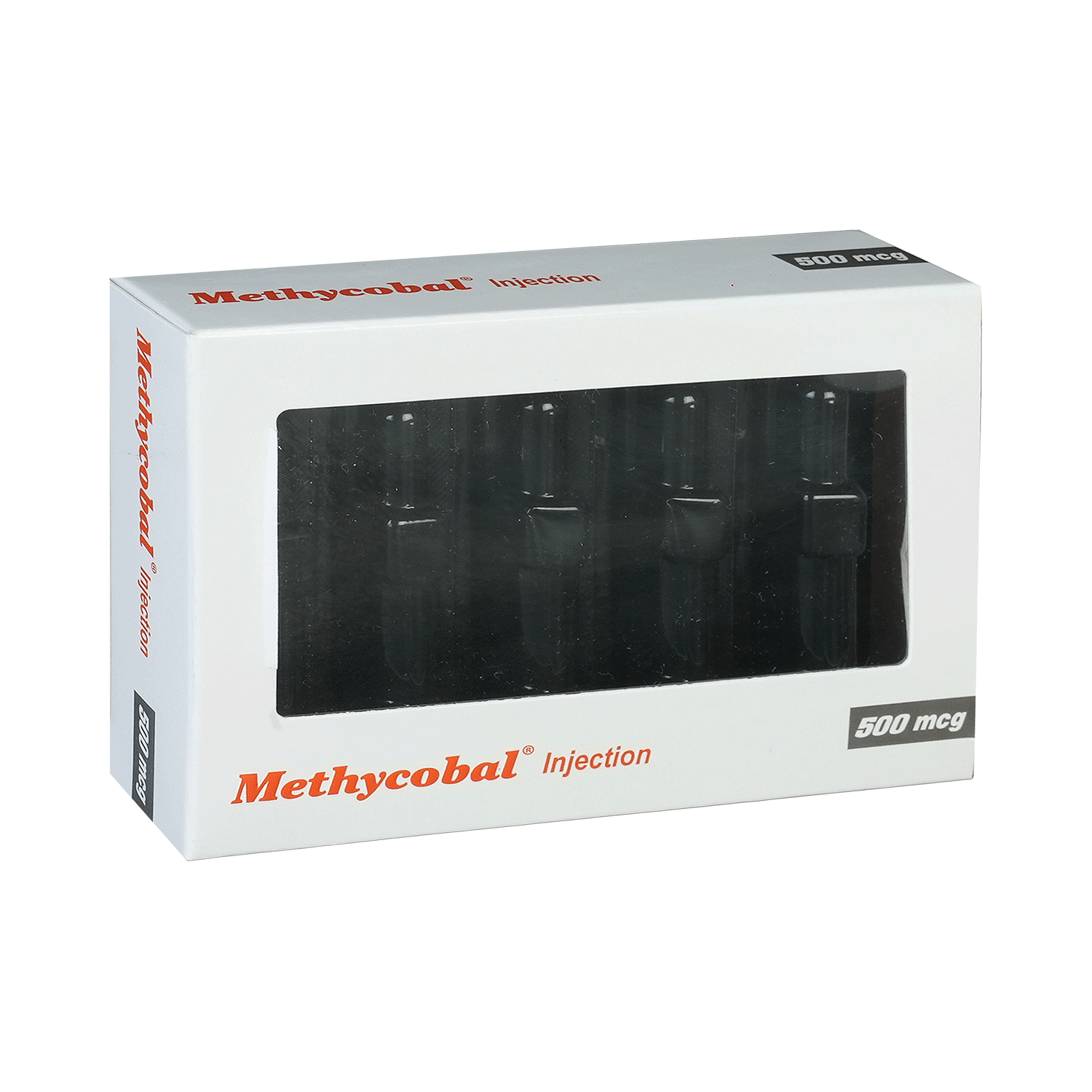
Methycobal Injection
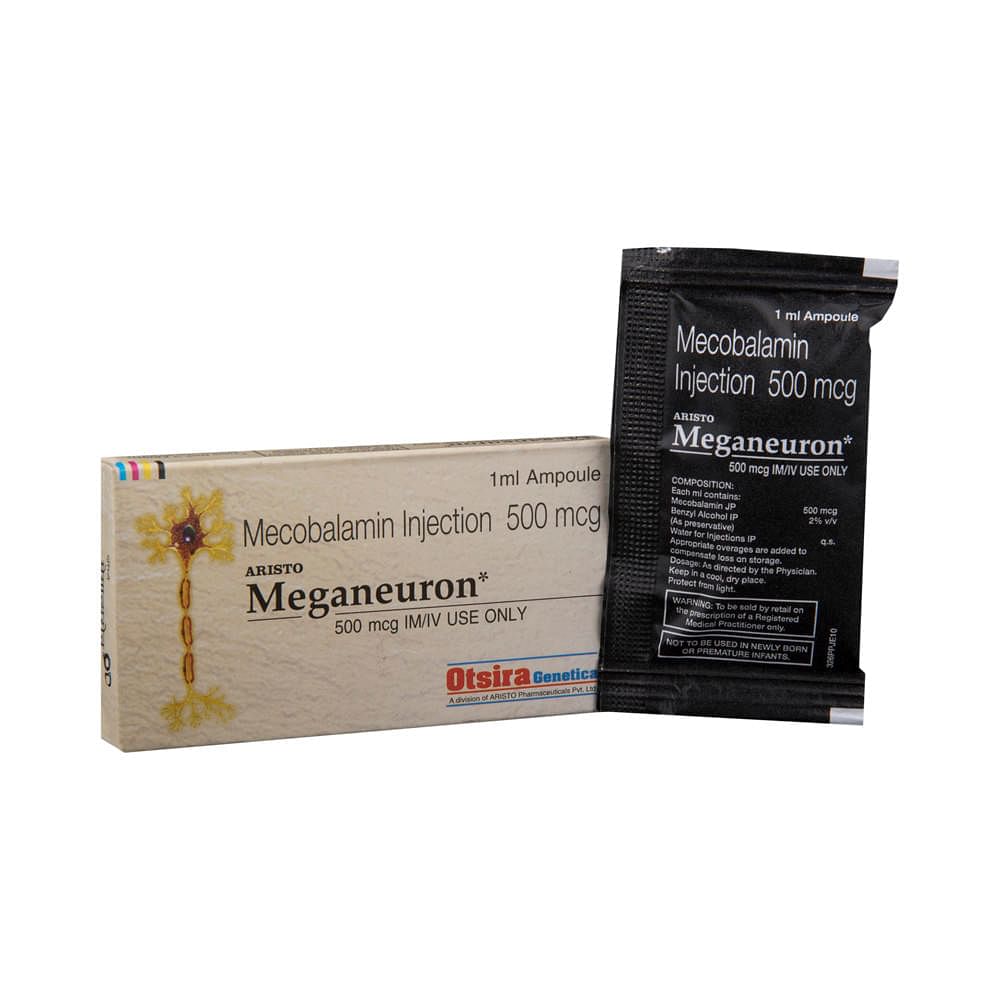
Meganeuron Injection

Resner 500mcg Injection

Nervace Injection

Bam 500mcg Injection

Medhamin 500mcg Injection

Mecolup 500mcg Injection

Intebion 500mcg Injection
Frequently asked questions
What is Rejunex Injection?
Rejunex Injection contains vitamin B12, an essential nutrient that plays a vital role in red blood cell production and maintaining a healthy nervous system. It also aids energy release from food and facilitates the utilization of vitamin B11 (folic acid).
Why may I struggle to get sufficient vitamin B12 through my diet?
Vitamin B12 is often found in meat, fish, eggs, and dairy products. However, individuals who follow vegetarian or vegan diets may not obtain adequate levels of vitamin B12 as it is not naturally present in plant-based foods such as fruits, vegetables, and grains. Therefore, these individuals are at risk for developing vitamin B12 deficiency.
What happens if I experience a vitamin B12 deficiency?
A deficiency in vitamin B12 can lead to various symptoms including fatigue and weakness, constipation, loss of appetite, weight loss, megaloblastic anemia (an abnormally large red blood cell), and nerve problems such as numbness or tingling in the hands and feet. Additionally, individuals with vitamin B12 deficiency may experience issues with balance, depression, cognitive decline, difficulty remembering information, a dry mouth, or sores on their tongue.
Is Rejunex Injection safe?
Rejunex Injection is generally well-tolerated and considered safe. However, some individuals may experience minor side effects such as nausea, diarrhea, anorexia (loss of appetite), and rash. If a rash develops, discontinue the use of this medication immediately.
How should Rejunex Injection be administered?
Rejunex Injection can be administered either intravenously or intramuscularly. The typical dosage is 0.5 mg, given three times a week. After two months of treatment, individuals may receive maintenance therapy with 0.5 mg once every one to three months.
What precautions should I take when administering Rejunex Injection?
To avoid discomfort and potential complications, administer Rejunex Injection at different injection sites each time. If you experience significant pain during the injection or if blood flows back into the syringe, remove the needle and re-insert it at a new site.


